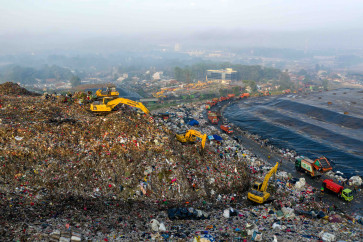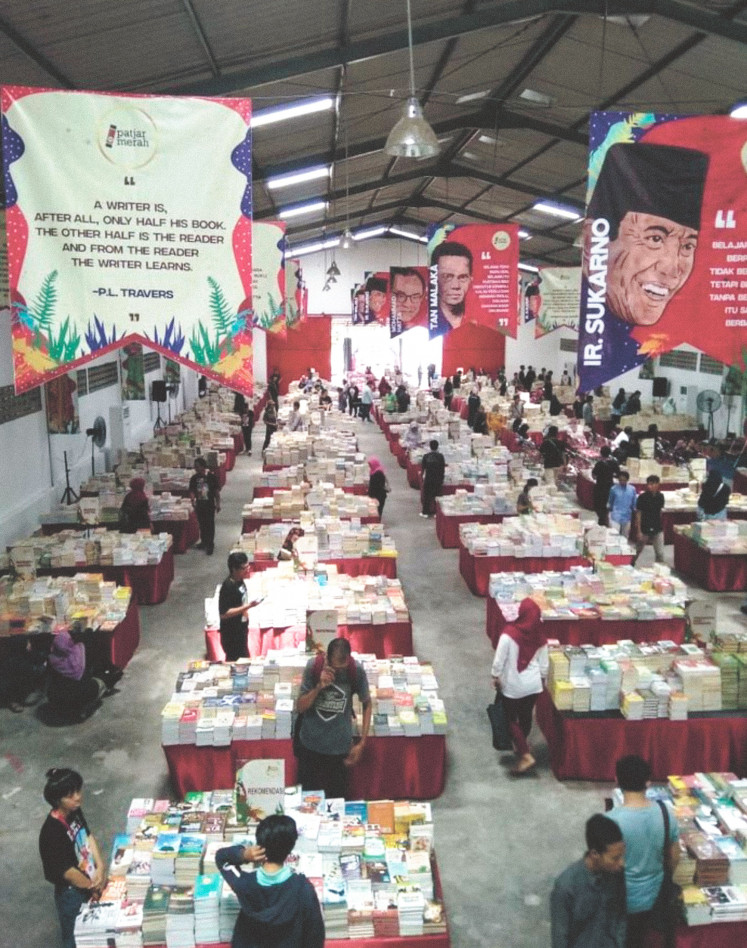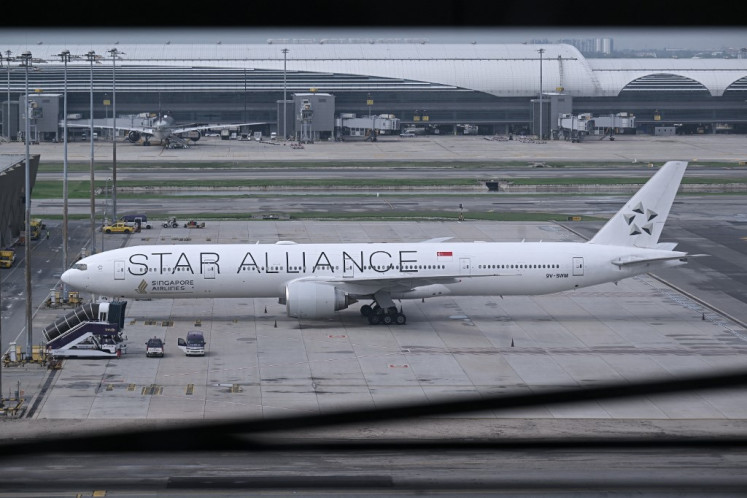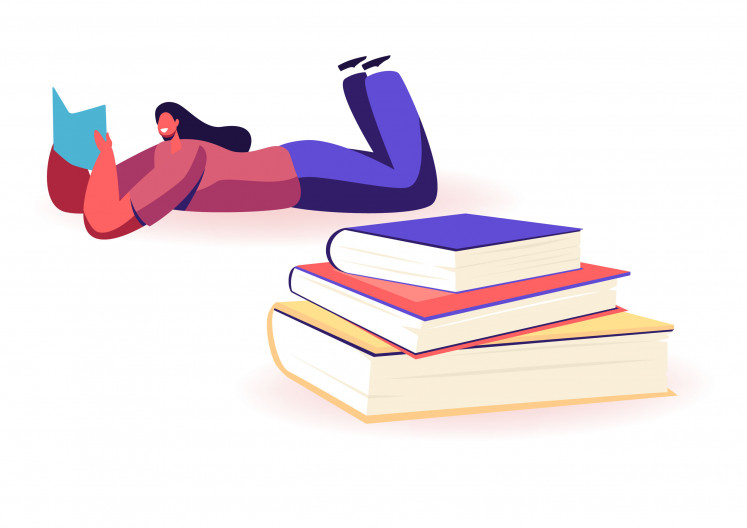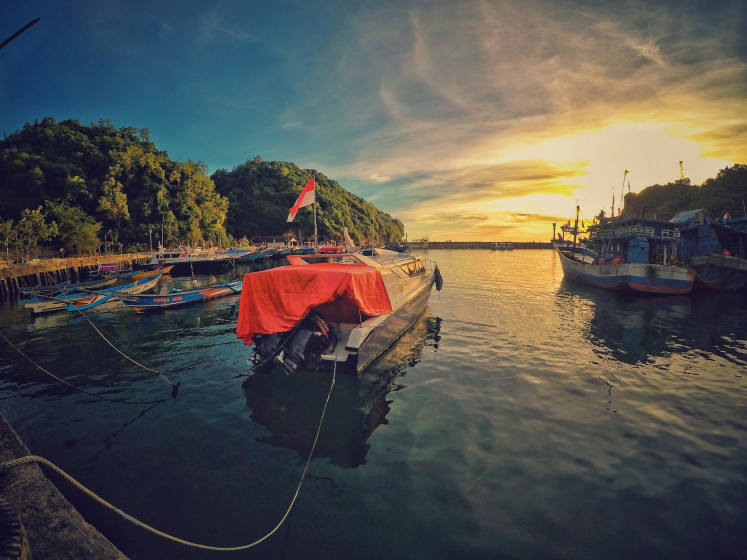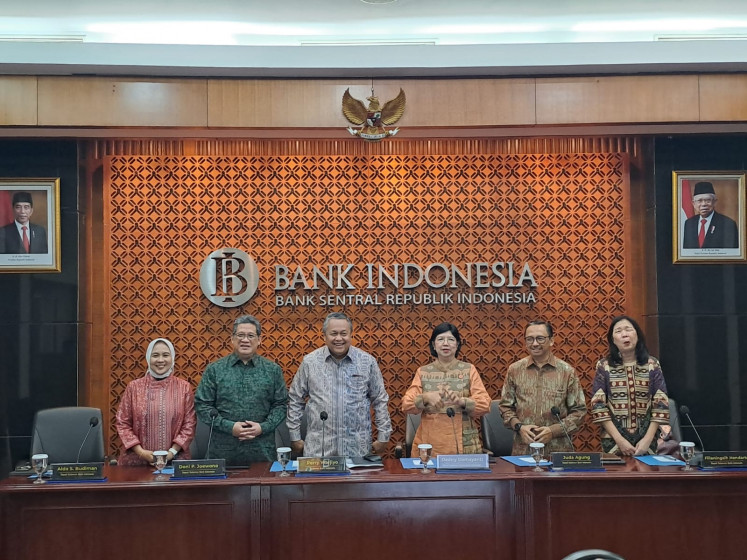AI blurs boundary between machines, people
Change Size
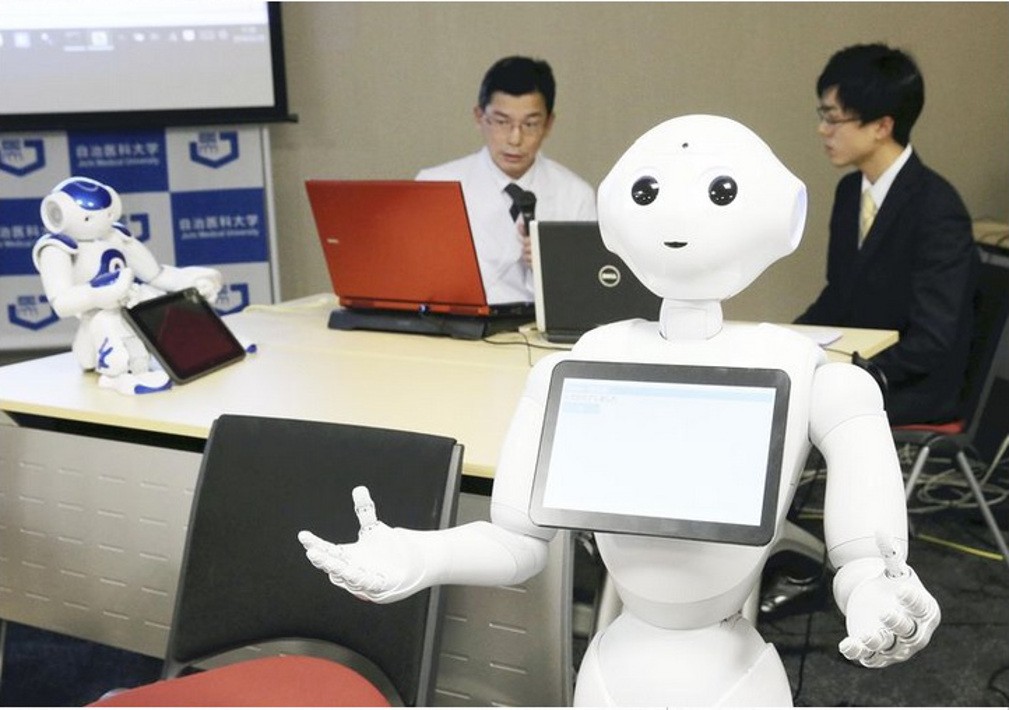 The robot Pepper demonstrates a newly invented method in which the robot and artificial intelligence help doctors examine patients in Tokyo last month. (The Japan News/-)
The robot Pepper demonstrates a newly invented method in which the robot and artificial intelligence help doctors examine patients in Tokyo last month. (The Japan News/-)
T
he match sent a shock wave around the world. AlphaGo, an artificial intelligence program developed by Britain-based Google DeepMind, defeated a top Go player.
The Go board is larger than those used for chess and shogi, and many believed AI programs would defeat humans 10 years from now at the earliest. Remarkable technological development demonstrated ability in a field requiring a “wide perspective” to read situations every time a move was made.
This is the third AI boom since the end of World War II. In the last two, AI programs could not do anything unless they were taught “knowledge” and “ways of thinking” by humans.
If we think of past AI programs as babies who needed full-time care, the latest one has grown to the level of a primary school student who learns independently. The autonomy of the AI program was provided by a new technology called deep learning.
There is growing expectation that in the near future, intelligence far beyond human understanding will produce new technologies by using knowledge and information around the globe to drastically change the world.
By making excellent use of nanotechnology, the intelligence will cure any disease or injury, and also resolve environmental problems. If it were to bare its fangs at humans, it would become a threat that we could not compete with. The 2014 film “Transcendence” depicts a world in which AI is highly developed.
Many countries have spent an enormous amount of money to take the lead in the field, and global “artificial intelligentization” is arriving at the point of no return. If this happens, we should choose a path of coexistence.
Work that requires high productivity and accuracy, or dangerous labor that requires physical strength, should be left to machines. Humans should assume roles that need sensitivity, such as art and businesses requiring negotiation. Every time an industrial revolution has taken place, humans have found new jobs.
As AI expands into more fields, humans will look for roles that can be played only by them, which is nothing less than asking what humanity is. What will it be like if machines ultimately do all the work and humans are liberated from labor?
The remaining “sanctuary” might be nonproductive, sentimental or sometimes involve nonsensical activities.
A person fishes on a nondescript beach all day long, and talks with people while drinking alcohol until dawn, even though they have to get up early the next morning. One may look leisurely at a sunset or starry sky, despite having things to do, and then fall asleep. Given all this, I feel my daily life is quite human and cannot be done by AI programs.
However, the programs are “deep learners.” They will even try to imitate feelings that are difficult to explain. AlphaGo was defeated in one match, but could that have been out of consideration for public opinion, or the sentiments of the human Go player?
As I thought such things, the boundaries between humans and machines started to blur.
This column could have been written by an AI program. Who knows?



